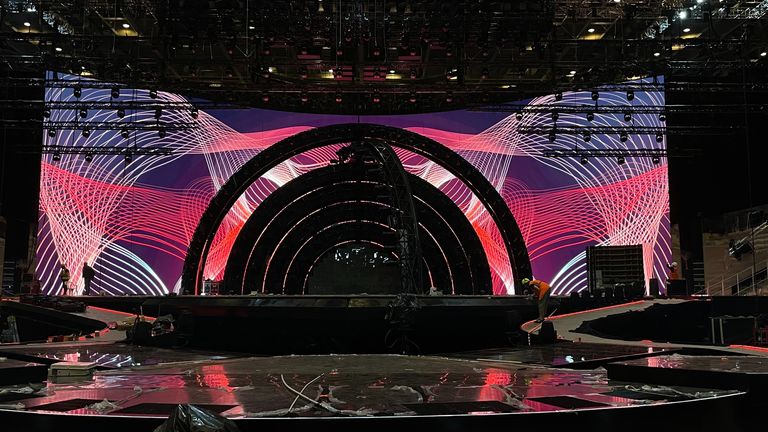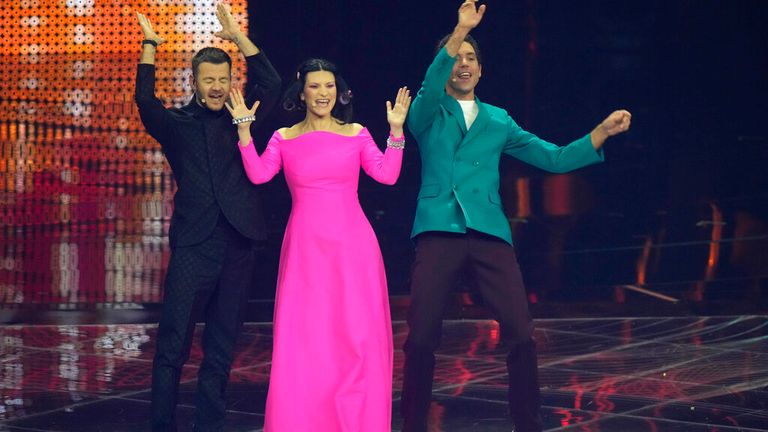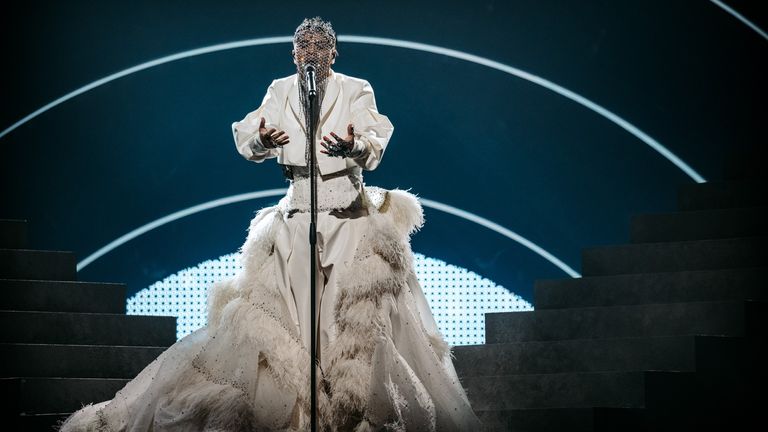[ad_1]
Believe it or not, the Eurovision Song Contest is one of the biggest, most-watched annual television events in the world.
Hundreds of millions of people across the globe watched last year’s competition in Rotterdam – where Italy’s Maneskin topped the leader board with Zitti E Buoni and the UK’s James Newman scored the dreaded nil points with Embers.
This year, once more, promises to be an exciting contest – the arena will be full to the brim with screaming fans, and stars will grace the stage unencumbered by the worries of COVID.
But who is in the running, who should you watch out for, and could global events influence the result (I think you may already know the answer to that one…)?
The beautiful northern Italian city of Turin is home to this year’s contest, after various places around the country bid for the chance to hold the contest.
As has been the case for decades, the victor of the annual contest wins the right to host it the following year.
The show itself will come from the PalaOlympico, an arena built for the 2006 Winter Olympics, where it hosted the Ice Hockey events.
However, more recently it has been used as a concert venue, hosting the likes of U2, Ariana Grande and Madonna.
Who is hosting?
Curiously, there is British interest in this answer – pop icon Mika is among the trio of hosts for this year’s Eurovision.
The Grace Kelly singer will be joined on stage by Alessandro Cattelan and Laura Pausini in Turin.
Mika had chart success in the late noughties with his album Life In Cartoon Motion, which featured massive hits such as Love Today and Lollipop, and went on to be a judge on the Italian version of the X-Factor – if that answers your question.
For the UK, Graham Norton will, as usual, commentate on the event, with Scott Mills and Rylan on hand for the semi-finals. AJ Odudu will utter the words “this is Salford calling” for the first time ever, as the UK’s voting spokesperson on the night.
Who is taking part?
Eurovision doesn’t strictly mean Europe only – it’s for member states of the European Broadcasting Union (EBU).
Any country in the world can join, confusingly, and not all European nations are a member (for instance, Australia takes part but Andorra does not).
Anyway, 40 countries will take part – five of which (The UK, France, Italy, Spain and Germany) get automatic entry into the final – they’re known as the Big Five.
The rest take part in two semi-finals on Tuesday and Thursday ahead of the main contest for the last 20 places.
Russia was booted out of this year’s contest after pressure from other member states.
How does it work?
After the semi-finals this week, 25 countries will battle it out in the grand final.
The order is drawn at random and all acts get one last chance to perform live.
Voting is done in two ways – the first is through national juries of each country, who award 1-12 points using their music expertise. These are the votes used by Eurovision when the talking heads come on to award each country’s points.
Secondly is the public vote – you can vote for anyone but yourself. These scores are totalled up and added on after the jury’s points are given out.
Win the most points, and you’re hosting Eurovision next year.
Who is favourite to win?
No surprises here – it’s Ukraine.
Kalush Orchestra (a spin-off from their main group, Kalush) will perform Stefania in Turin – dedicated to the lead singer’s mother.
It’s a folk-rap song (how very Eurovision) sung entirely in Ukrainian – I’ll let you decide what you think of the track.
These odds may be a bit skewed, given the fact the country is under assault from Russia – leading to global support for Ukraine.
We caught up with Kalush last week in Turin, where the lead singer said one of the group’s members is still out defending the streets of Kyiv.
What about the UK?
Well. We’re second favourite to win.
Yeah you read that correctly – SECOND. FAVOURITE.
Sam Ryder, a TikTok sensation with more than 12 million followers, is among the front runners at the contest for the UK for the first time in years.
He’ll perform Space Man – a track he wrote during lockdown – a jaunty contemporary pop number.
Ryder is likeable, fun, and insanely talented. He was chosen by the BBC (who runs Eurovision on behalf of the UK) and record label TaP Records, in an effort to show the UK is taking the contest seriously.
Listen to his rehearsal clip from last week below.
Which acts should I watch out for?
Citi Zeni from Latvia has possibly got this year’s funniest track, Eat Your Salad – which is an ode to veganism and recycling through a jazzy pop number. Listen out for the opening lines “Instead of meat, I eat veggies and…” accompanied by a cat emoji behind them.
Then we have Norway with Give That Wolf A Banana by Subwoolfer. It has everything you want in a Eurovision act – references to eating bananas, pyrotechnics, the name Keith, and two men singing in bright yellow wolf masks.
For fans of early noughties goth rock, Finland’s act is a blast from the past with band The Rasmus – who were known for their 2003 smash hit In The Shadows. They’ll perform Jezebel – which they say is about a “girl who takes what she wants, without asking”.
You’re also going to want to keep an ear out for Eurovision experts Sweden, Spain’s Chanel with SloMo and Portugal’s Maro with Saudede, Saudede.
Eurovision begins on Tuesday with the first semi-final at 8pm on BBC Three, then again on Thursday.
The main show takes place on Saturday at 8pm, on BBC One.
[ad_2]





